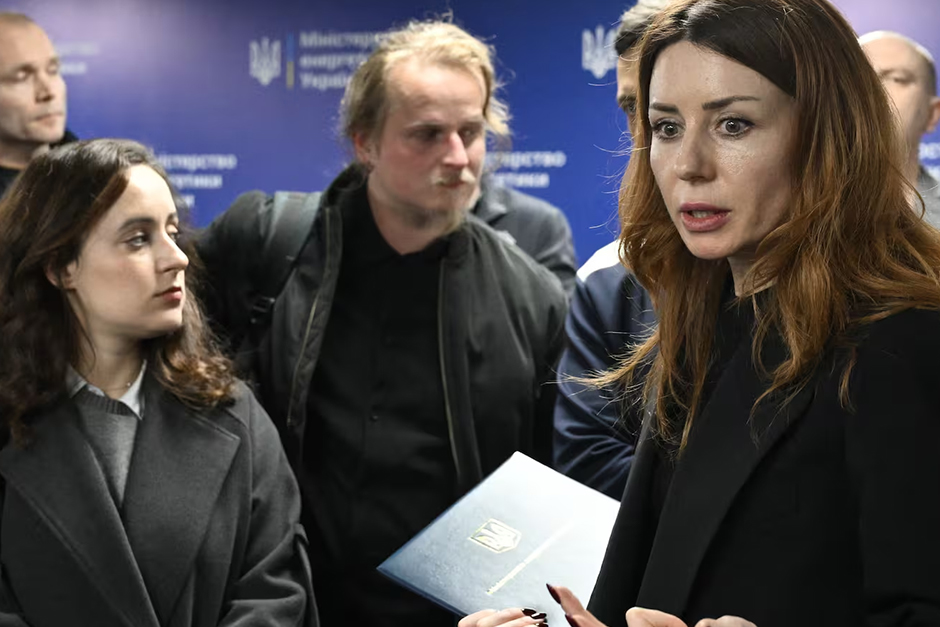For months, European nations have stood as unwavering partners to Ukraine, providing substantial financial and military aid. This solidarity has been a cornerstone of the continent’s response to geopolitical shifts. However, a growing undercurrent of unease is beginning to ripple through European capitals, primarily driven by concerns surrounding accountability and the shadow of corruption probes within Ukraine, particularly as they reportedly draw closer to high-level figures.
The Stakes of European Support and Emerging Concerns
From humanitarian assistance to vital military provisions and economic stabilization packages, the scale of European support has been unprecedented. This commitment is rooted in shared values, strategic interests, and a deep concern for the region’s future. Yet, with such significant investment comes an inherent demand for robust oversight. While the initial focus was on rapid deployment of aid, the sustained nature of the conflict and the sheer volume of resources involved have naturally brought questions of transparency and the effective use of funds to the forefront of discussions.
European taxpayers and governments are increasingly scrutinizing how their contributions are managed. The goodwill established at the outset of the conflict, born of urgency and shared purpose, is now being tested by the long-term realities of financial governance and the historical challenges Ukraine faces regarding internal corruption.
Unpacking the Corruption Probes and Their Proximity
Ukraine has a long-standing history of grappling with corruption, a challenge its government has openly acknowledged and committed to tackling, even amidst conflict. Various internal probes have been ongoing, targeting officials and illicit schemes across different sectors. The current European apprehension stems from reports suggesting that some of these investigations are approaching circles closer to the highest echelons of Ukrainian leadership. While the specifics often remain under wraps during active investigation, the mere perception of such proximity can be enough to trigger concern among donor nations.
“Donors want to see their aid making a tangible difference on the ground, not being diverted,” notes one international governance analyst. “When probes suggest potential issues at senior levels, it creates a very difficult political dynamic for leaders in donor countries who need to justify continued, substantial financial commitments to their own taxpayers.” This sentiment underscores the dilemma faced by European leaders: maintaining critical support while simultaneously addressing the imperative for stringent accountability.
The Delicate Balance: Aid, Accountability, and Trust
For European governments, navigating this situation presents a profound dilemma. On one hand, there is a clear imperative to continue supporting Ukraine’s defense and recovery. On the other, there’s an equally strong obligation to ensure that taxpayer money is utilized responsibly and effectively. The shadow of corruption, even alleged, can erode public trust in donor countries, making it harder for political leaders to secure mandates for further aid packages.
Consequently, there is a heightened emphasis on observable progress in anti-corruption reforms and the implementation of stringent oversight mechanisms. The expectation is that Ukraine will continue to demonstrate its commitment to transparency, not just in rhetoric but through concrete actions and prosecutorial successes. This dual challenge of defending sovereignty while simultaneously strengthening governance structures is immense, yet it remains a critical factor in maintaining the robust international coalition that has rallied behind Kyiv.
The unfolding situation highlights the complex interplay between international solidarity, geopolitical realities, and the persistent global challenge of corruption. Europe’s nervousness is less about abandoning Ukraine and more about ensuring the long-term sustainability and credibility of its support. As the conflict continues, the ability of Ukraine to demonstrate unwavering commitment to accountability and transparency will be crucial, not only for its internal reforms but also for solidifying the confidence of its vital international partners and securing the aid essential for its future.




